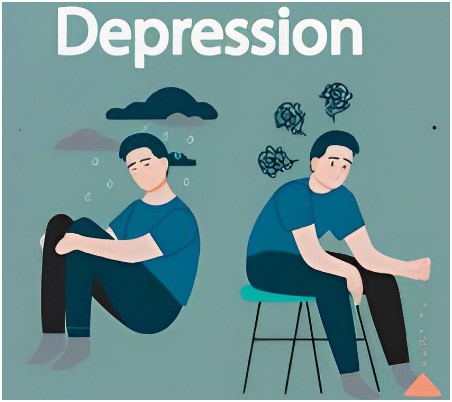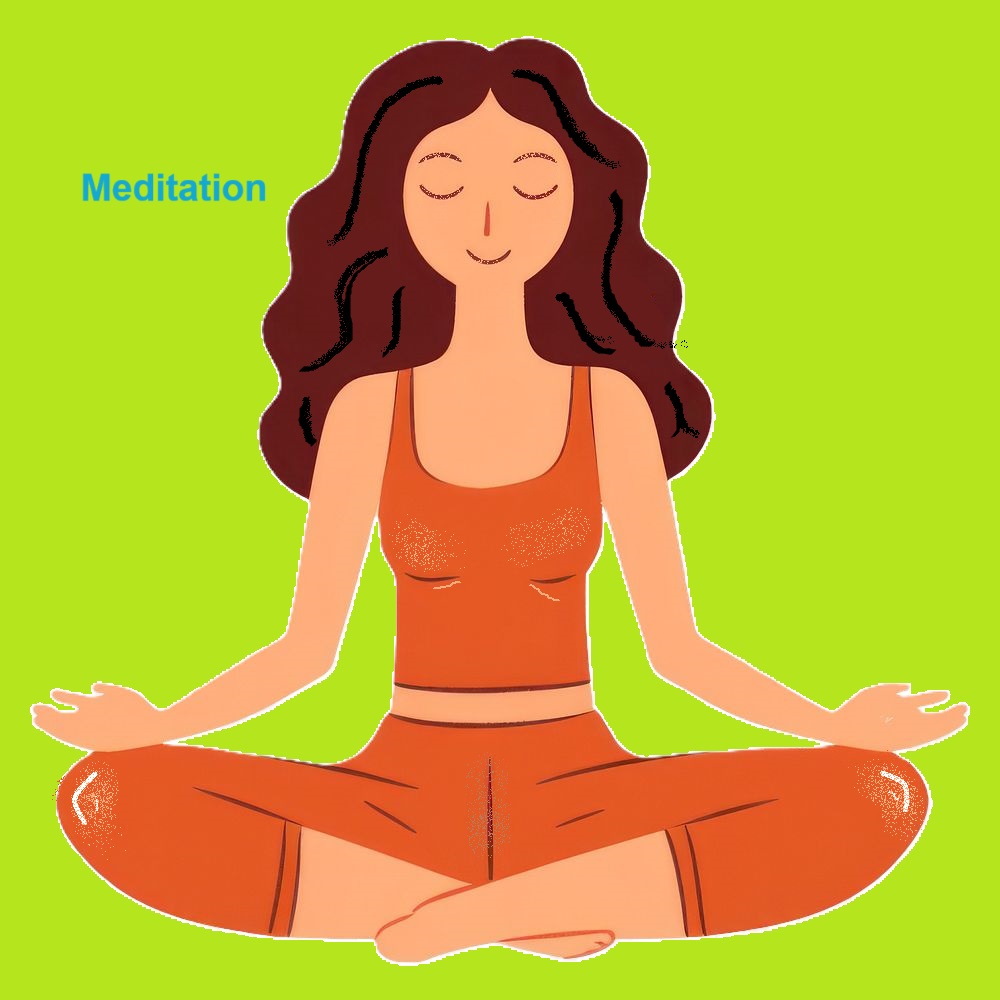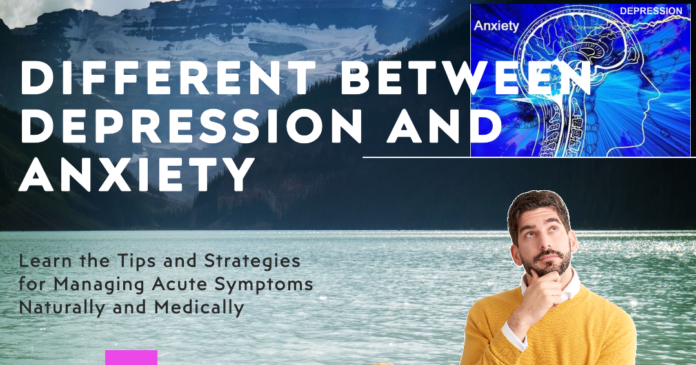Today, millions of people are affected by depression and anxiety within this fast-paced environment. It’s necessary to know about these illnesses if you want to keep them under control. This post breaks down what depression and anxiety are, their signs as well as causes while suggesting some ways based on evidence which may help in dealing with them or even preventing their occurrence.
What is Depression?
Depression is a mood disorder with symptoms of prolonged sadness, hopelessness, and a decrease in interest or pleasure in any usual activities. It may strike anyone, anywhere, at any time.
Symptoms of Depression
- Persistent sadness or low mood
- Loss of interest in previously enjoyed activities
- Changes in appetite or weight
- Recurrent thoughts of death or suicide
- Feelings of worthlessness or excessive guilt
- Difficulty concentrating
- Fatigue or loss of energy
- Insomnia or excessive sleeping
Causes of Depression
Depression can be caused by a combination of genetic, biological, environmental, and psychological factors. That also depend on the person’s behavious and surroundings. These may include:
- Family history of depression
- Major life changes or trauma
- Substance abuse
- Imbalance of neurotransmitters in the brain
- Chronic medical conditions

What is Anxiety?
Anxiety is a normal response to stress but it can be excessive and can turn into a disorder. Anxiety disorders include general anxiety disorder, panic disorder, and social phobia disorder, among others.
Symptoms of Anxiety
- Excessive worry or fear
- Restlessness or feeling on edge
- Rapid heartbeat
- Gastrointestinal issues
- Sleep disturbances
- Difficulty concentrating
- Shortness of breath
- Trembling or sweating
Causes of Anxiety
Like depression, anxiety disorders can result from multiple factors. Some of them are as follows:
- Genetics
- Brain chemistry
- History of trauma or abuse
- Environmental stressors
- Personality traits
Coping Strategies and Treatments
Lifestyle Changes
- Regular Exercise: Physical activity help to reduce symptoms related to depression and anxiety by releasing endorphins that improve mood.
- Healthy Diet: Maintaining a good diet can go a long way towards ensuring your mood and levels of energy are right where they should.
- Adequate Sleep: Prioritizing sleep can help regulate mood and stress levels. A healthy man should get at least of 6 hours of good sleep.
- Mindfulness and Meditation: Practices such as mindfulness, meditation, and yoga are known to relieve stress and induce relaxation.

Meditation-Girl
Therapy
- Cognitive Behavioral Therapy (CBT): This is a psychological treatment method through which an individual is helped to redefine his or her negative patterns of thought and behavior.
- Psychotherapy: Also known as talk therapy, it involves discussing issues with a mental health professional.
- Group Therapy: Sharing experiences with others can foster support and decrease a feeling of isolation.
Medication
- Antidepressants: These medications can help control brain chemistry and elevate your mood.
- Anti-Anxiety Medications: These may help to alleviate symptoms in cases of extreme anxiety.
- Beta-Blockers: THis is commonly used medication for symptoms of anxiety that are more physical in nature.
Self-Care Techniques
- Journaling: Writing down thoughts and feelings can help manage emotions.
- Hobbies: Engaging in a pleasant activity lets you feel gratification and enjoyment.
- Social Support: Reaching out to friends, family, or a support group can help with feelings of loneliness through emotional support.
Prevention Strategies
- Stress Management: Developing healthy ways to cope with stress can prevent anxiety and depression.
- Early Intervention: Seeking help at the first signs of depression or anxiety can prevent symptoms from worsening.
- Regular Check-Ups: Regular visits to a healthcare provider can help identify early signs of mental health issues.
- Education: Learning about mental health can empower individuals to recognize symptoms and seek help.
FAQs
What is the difference between depression and anxiety?
Depression often feels like a heavy weight of sadness and loss of interest in things you used to enjoy. Anxiety, on the other hand, can make you feel constantly on edge, with worries that can be hard to shake.
Can depression and anxiety occur together?
Absolutely. It’s common for people to experience both at the same time, which can make each one harder to deal with.
How can I tell if I have depression or anxiety?
If you’re struggling with feelings of sadness that won’t go away or find yourself worrying excessively and feeling tense, it might be time to talk to someone who can help.
What should I do if I think I have depression or anxiety?
Reach out to a healthcare professional. They can listen, understand what you’re going through, and help figure out the best way forward.
Can lifestyle changes really help with depression and anxiety?
Yes, taking care of yourself, like eating well, exercising, and finding ways to relax. It can make a big difference in how you feel.
Are medications for depression and anxiety addictive?
While some medications can be habit-forming, doctors are careful in prescribing them and monitor their use closely.
How long does treatment for depression and anxiety take?
It would be different for everyone. Treatment can take time, but with the right support, many people see improvements and feel better over time.
What could be the prevention for depression and anxiety?
While we can’t always prevent these feelings entirely, managing stress and getting help early can make a big difference in how we cope.
Can children and teenagers suffer from depression and anxiety?
Yes, these feelings can affect anyone, no matter their age. It’s important to recognize signs early and offer support.
What role does genetics play in depression and anxiety?
Genetics can play a part, especially if others in your family have those issues previously. But it’s not the only factor. Environment and life experiences matter too.
Remember, facing these feelings is a brave step. Taking care of your mental health is just as important as your physical health. You’re not alone, and reaching out for support shows strength, not weakness.

